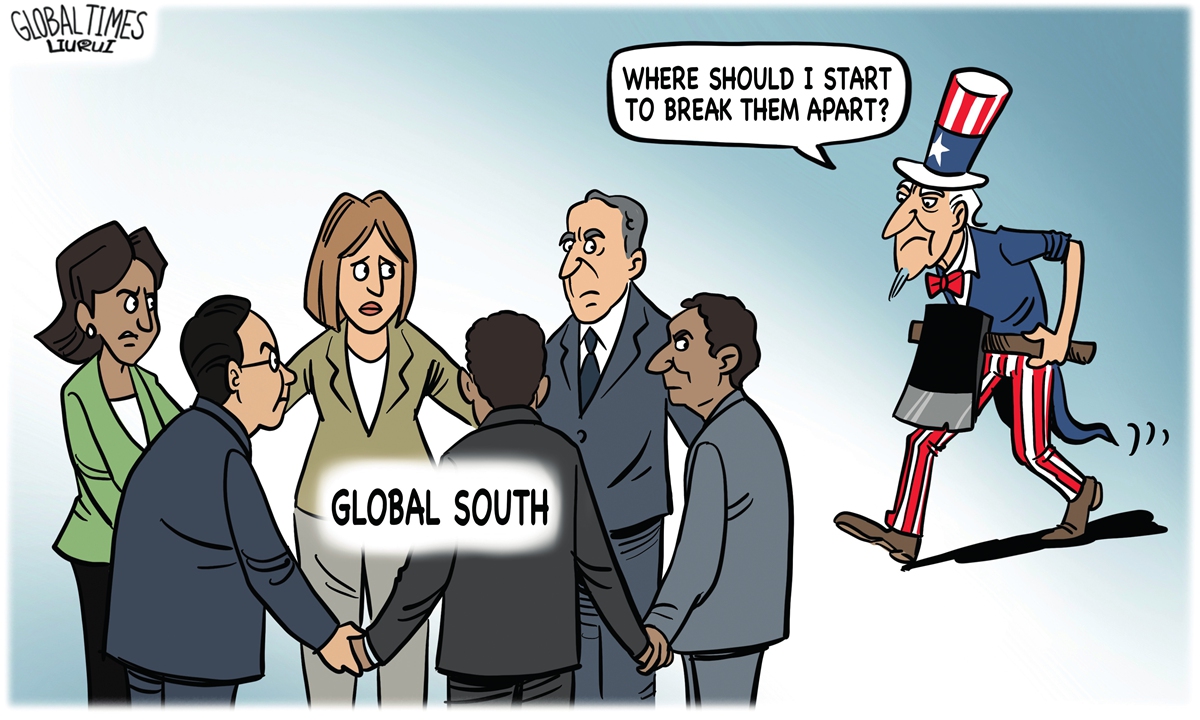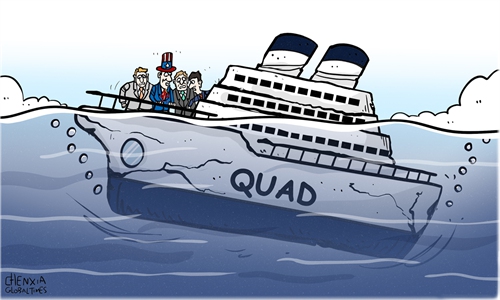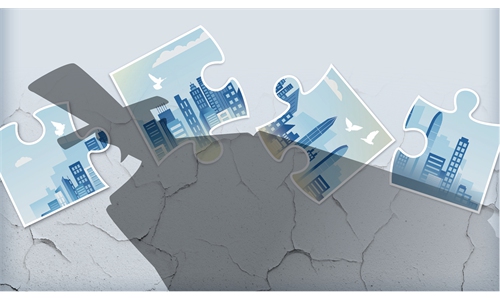Plague-driven G7 offers empty promises, winning no faith from Global South countries

Illustration: Liu Rui/GT
This year's Group of Seven (G7), under Japan's presidency, has advocated a stronger relationship with the "Global South" and invited leaders from India and other developing countries to attend the G7 Hiroshima Summit. However, ultimately, most of the summit's focus was put on opposing Russia and China.
In response to the G7 Hiroshima Leaders' Communiqué, an article in Oxfam, a British-founded confederation of 21 independent charitable organizations focusing on the alleviation of global poverty, noted, "The G7 have failed the Global South here in Hiroshima."
"As a club of developed countries, G7 can't represent other countries. Although they can no longer fully dominate the current order, they think they still play the dominant role and want to control this order at their will and in their own interests, but there is always a gap between ideal and the reality," Wang Shuo, a professor with the School of International Relations at Beijing Foreign Studies University, told the Global Times.
Oxfam estimated that the rich countries of the G7 owe poor countries $13 trillion in unpaid development aid and support to combat climate change. However, the G7 countries and their banks are demanding $232 million per day as debt repayments from the Global South countries.
"This is a very unequal relationship. The developing and developed countries have many conflicts on rules, development interests and other issues, and these conflicts become more prominent amid the Ukraine war. This is instigated and manipulated by the developed countries, but the poor countries have become victims, and this is one of the reasons why the Global South is now extremely dissatisfied with the rich countries," Wang said. He noted that the voices of Global South countries indicate that they gradually don't trust the developed countries, whose credibility is declining and whose dominance of the global order is being weakened.
Wang also pointed out that these G7 countries are now in a bad situation. With their own lingering economic, social and political problems, they will pass the buck to others, their sense of responsibility as major powers will reduce, and their vision will become more and more shortsighted, which will lead to a lower possibility for them to play an active role in global affairs. The worse their own situation becomes, the more rogue and selfish they themselves become, then things get even worse. This is a vicious circle that brings ruin upon themselves.
Moreover, Global South countries are now being plagued by serious food and debt crises. Hunger is increasing faster around the world than it was decades ago. These crises are a direct knock-on effect of the war in Ukraine that is being supported by these developed countries.
Wang believes that developed countries have a moral responsibility to assist developing countries, because many poor countries are former colonies of rich countries, and in fact the socioeconomic problems of these former colonies now are largely caused by the previous colonization of the developed countries. Nonetheless, the developed countries usually advocate the so-called international responsibility while ignoring others' interests.
Shi Yinhong, director of the Center for American Studies at the Renmin University of China, told the Global Times that the G7 summit mainly announced some principles, but these principles are still very far from further implementation in helping the Global South to tide over the difficulties and turn into concrete and operational policies, and the West is relatively limited in this regard, both in terms of their willingness and ability.
The G7, as a clique formed for their own interests, is actually unable to afford the maintenance of a rational global order, so this kind of clique may be further and further away from the vast number of developing countries which are expected to play an active role in the world.
The author is a reporter with the Global Times. wangzixuan@globaltimes.com.cn


